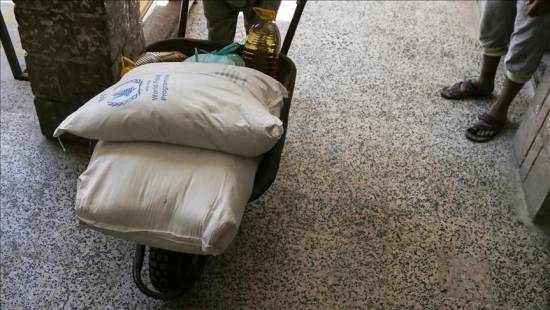World Food Program suspends food aid to South Sudan over insufficient funds
The UN World Food Program (WFP) on Tuesday suspended food assistance to South Sudan, citing insufficient funding as the sole reason.
The WFP’s decision will increase the risk of starvation for 1.7 million people, according to a statement issued in the capital Juba.
According to the UN humanitarian organization, some $426 million is needed to reach six million food-insecure individuals by 2022.
South Sudan, a member country of the East African Community, is currently facing its “hungriest year” since independence in 2011, with over 60% of the population grappling with severe food insecurity, a situation exacerbated by the war in Ukraine and local climate change that has created droughts.
“Humanitarian needs are far exceeding the funding we have received this year,” said Adeyinka Badejo, acting WFP country director in South Sudan.
“If this continues," she warned, "we will face bigger and more costly problems in the future, including increased mortality, malnutrition, stunting, and disease.”
The WFP is extremely concerned about the impact of the funding cuts on children, women, and men who will not have enough to eat during the lean season, the statement said.
According to the latest Integrated Food Security Phase Classification (IPC) assessment, 7.74 million people will face severe acute hunger during the lean season, which runs from June to August, and 1.4 million children will be critically malnourished.
“These families have completely exhausted their coping strategies. They need immediate humanitarian assistance to put food on the table,” Badejo added.
Due to the same budget difficulties, WFP slashed food rations in half in September of last year, leaving most households with very little food to eat.
Cereals, pulses, vegetable oil, and salt are all part of a WFP food ration.
The food suspension aid will also affect 178,000 schoolchildren who will no longer receive daily school meals, a crucial safety net that helps keep South Sudanese children in school, the statement said./aa


